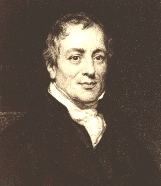David Ricardo
Ricardo, David
| Topics: |
David Ricardo (1772–1823), a British economist recognized as a founder of the school of classical economics and regarded as one of history's most important economists. Ricardo first articulated the law of diminishing returns in 1815. One of the most fundamental laws of economics, it holds that as more and more resources are combined in production with a fixed resource—for example, as more labor and machinery are used on a fixed amount of land—the additions to output will diminish. On foreign trade, Ricardo is famous for his theory of comparative advantage. He argued that there are gains from trade if each nation specializes completely in the production of the good in which it has a "comparative" cost advantage, and then trades those goods with other nations in exchange for other goods. In Principles of Political Economy and Taxation (1817), Ricardo articulated a “labor-embodied" theory of value in which the relative "natural" prices of commodities are determined by the relative hours of labor expended in their production. Ricardo shared a close personal and professional relationship with Thomas Malthus, another influential economist of the time
